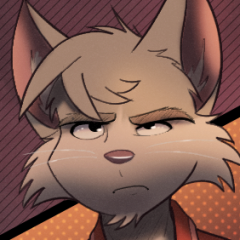First off, for a career primer on what all this stuff is like, there's really nothing more accurate and comprehensive than the GameSoundCon annual survey. Here's the report from 2017: https://www.gamesoundcon.com/single-post/2017/10/02/GameSoundCon-Game-Audio-Industry-Survey-2017
Networking is absolutely the most important thing you can do as a composer (really, as a person who seeks to stay ahead in any industry). As shown in the report, little over half of all reported gigs were recruitments and referrals. I've been presented a lot of opportunities by knowing a lot of people who have things going on. For example, a composer/business mentor I met years ago contacted me recently to tell me he (and even his assistant) is starting to get too busy for the gig load that's coming into his company, and that he wants to rope me in to help out with that stuff and sees my skillset as up to the task.
As for groups and places, you really want to join the Game Audio Network Guild, and start attending GDC if you can afford it. They have cheaper Expo passes that don't give you access to audio panels, but don't at all inhibit your ability to network or attend the guild mixers/events. GDC is really the most important networking event for any sub-industry of the game industry. Getting to know the faces of all the people who you're in the industry with is really essential. The Guild itself gives a lot of resources, like discounts, sure, but also things like contract templates for your gigs.
That being said, it's important to learn how to network. Do not go around handing business cards and expecting that to do anything, and also don't be that person walking around asking if anyone's hiring. Networking is about building actual relationships with people, colleagues, friends. I essentially go to GDC just to hang out with people. When you meet someone really cool and fun to talk to, it's very memorable. When you meet someone who hands you a card and is like "I write and produce music", it's a massive yawn. Literally everyone else in the room might do what you do, and half of them might do it better.
Think of it like this, it's like creating a spider web. You can make a lot of connections and build a really huge web... but it's just going to rip and fall apart when it tries to catch something if all those connections are weak. Even if you have a small web of strong connections (closer to what my situation is like), that web will hold steadfast when something runs into it. The ideal is, over the years, starting with a small one and building it up to a large one, but always keeping it going strong.
Lastly, OCR is not a great place to get advice about this stuff. There's not a whole lot of professionals here who are actively in the industry who hang out on these forums. I highly recommend joining "Business Skills for Composers" on Facebook. It's a group of a few thousand people and a lot of very successful guys who like to mentor hang out there. The advice is really invaluable, and the amount of existing material that covers topics like how much to charge, how to network, how to pitch, managing your rights to your work, maximizing your opportunities (whether it be $$$ compensation or planting seeds for more opportunities), etc.are way more than enough to chew on for the first year of career development. It's a very focused group and heavily moderated, so all the content is on point and they make sure all the discussions are productive. There's really no first step I'd recommend more than joining BSFC and reading the discussions, and asking your own questions. Lots of people employ the advice they get there to great effect (for example, people don't realize they can often raise their rates a lot, and companies will accept the price).
Here's a great guide that @zircon sent me when I was younger and had no idea what any of this was about. http://tinysubversions.com/2005/10/effective-networking-in-the-games-industry-introduction/
As a final note... from the perspective of networking, your strongest asset is you, yourself. Your personality, your work ethic. When people are looking to hire, spread the word, refer gigs, w/e it is, they don't contact people who are flaky, people who are assholes, people who are unprofessional or not confident, etc. Being a composer is like being a salesperson in some respects. It's not just your product, and it's not just going around posting ads; it's very much about becoming someone people trust and like working with so that these relationship will keep bearing more fruit. You need to develop a personality that people will look at and say "i really like this guy/I really like working with this guy."




